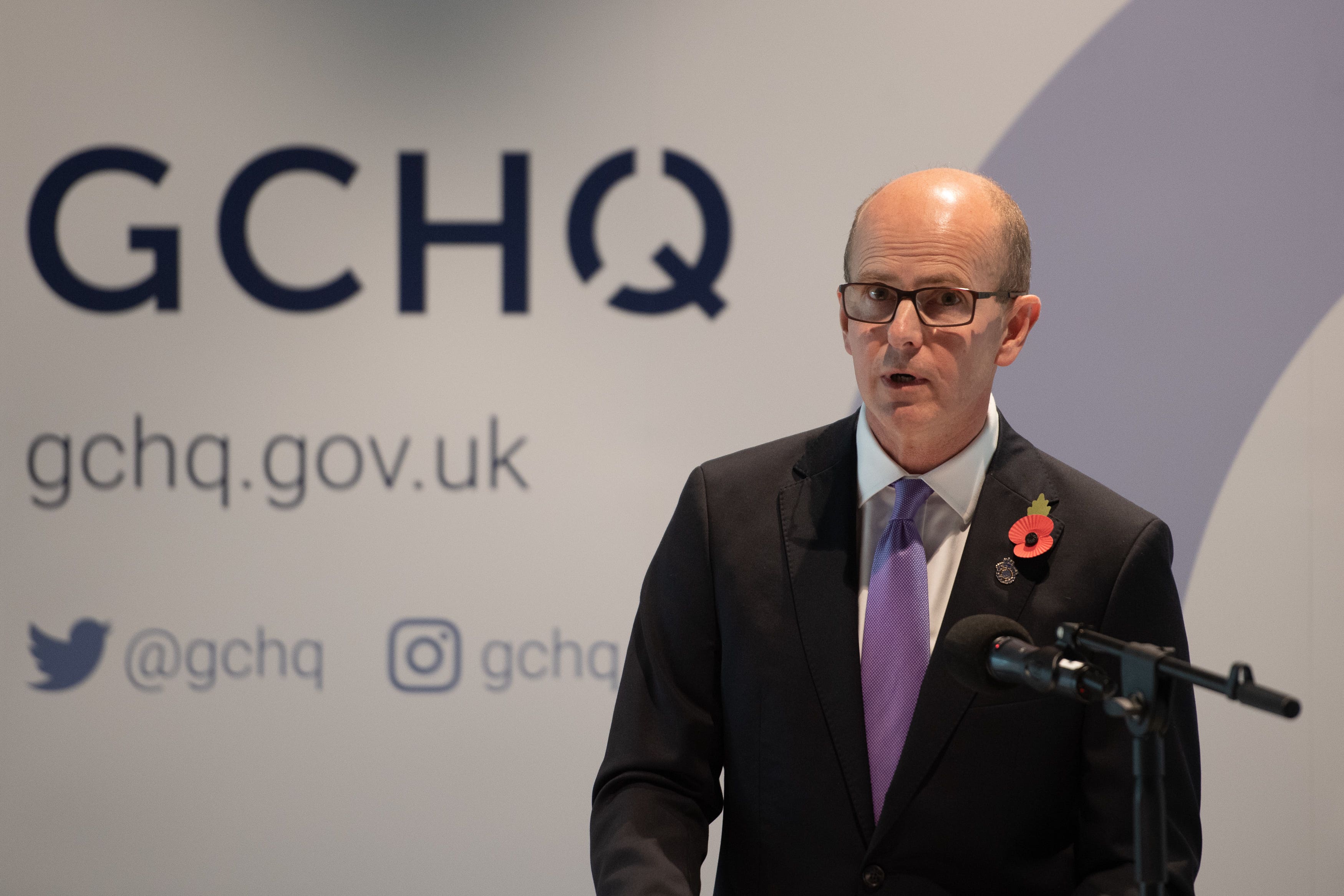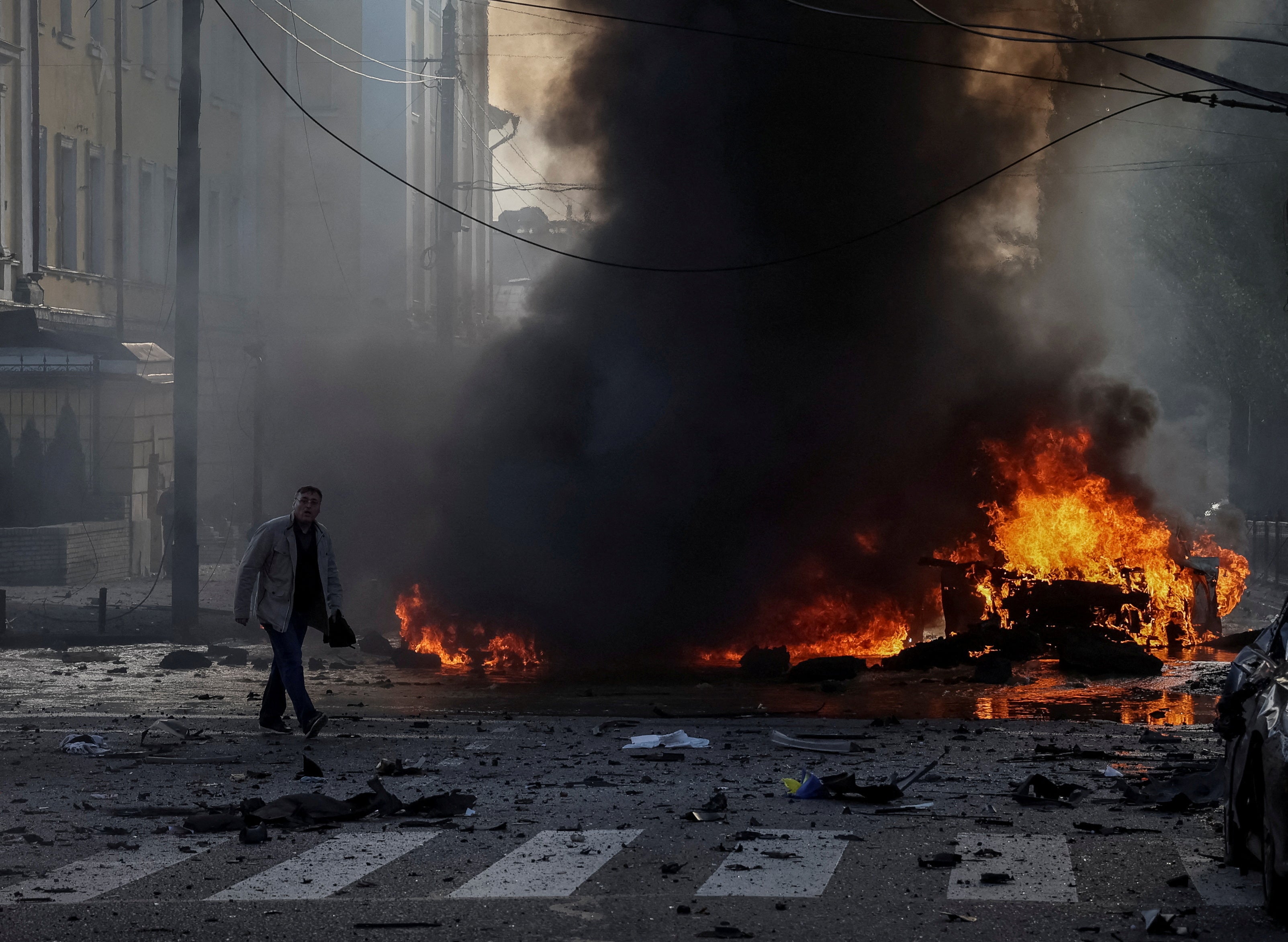Russians starting to see Putin has misjudged Ukraine war, says UK spy chief
Consequences of Vladimir Putin’s ‘war of choice’ are felt by ordinary people in Russia, the GCHQ head is to say
Your support helps us to tell the story
From reproductive rights to climate change to Big Tech, The Independent is on the ground when the story is developing. Whether it's investigating the financials of Elon Musk's pro-Trump PAC or producing our latest documentary, 'The A Word', which shines a light on the American women fighting for reproductive rights, we know how important it is to parse out the facts from the messaging.
At such a critical moment in US history, we need reporters on the ground. Your donation allows us to keep sending journalists to speak to both sides of the story.
The Independent is trusted by Americans across the entire political spectrum. And unlike many other quality news outlets, we choose not to lock Americans out of our reporting and analysis with paywalls. We believe quality journalism should be available to everyone, paid for by those who can afford it.
Your support makes all the difference.Ordinary Russian citizens are starting to see that Vladimir Putin misjudged his invasion of Ukraine, the head of the UK’s spy agency is expected to say.
Sir Jeremy Fleming – director of the intelligence, cyber and security agency GCHQ – is to make a speech on Tuesday in which he will state that Russians are feeling the consequences of Mr Putin’s “war of choice”.
His speech will follow a widespread bombing campaign carried out by Russian troops on Monday.
At least 11 Ukrainians died as Russia launched about 75 missiles in a widespread bombardment of Ukraine, which drew worldwide condemnation and vows of more sanctions against Russia.

At the annual Royal United Services Institute security lecture, Sir Jeremy is expected to say: “They’re [Russian citizens] seeing just how badly Putin has misjudged the situation.
“They’re fleeing the draft, realising they can no longer travel. They know their access to modern technologies and external influences will be drastically restricted.
“And they are feeling the extent of the dreadful human cost of his war of choice.”
Russian men have refused to fight, have protested against conscription, and so many have fled Russia altogether that flights out of the country had been sold out and queues built up at the borders.

Sir Jeremy will argue that the mobilisation of prisoners and inexperienced men “speaks of a desperate situation” that Russia is in as a result of its military losses and weakened manpower.
He will also say that the tide is turning against “exhausted” Russian forces whose “supplies and munitions are running out” and whose “gains are being reversed”.
In a speech in March, just weeks after Mr Putin launched the invasion, Sir Jeremy said intelligence had shown that some Russian soldiers had refused to carry out orders, sabotaged their own equipment and accidentally shot down one of their own aircraft.

Meanwhile, in his nightly address to Ukrainians, Volodymyr Zelensky said on Monday evening that the “world is with us” against Russia in the face of the latest attacks.
Mr Zelensky said: “Ukraine cannot be intimidated. It only brings more of us together.
“Ukraine can’t be stopped. It only convinces us even more that terrorists should be brought down.
“The Russian army purposely struck these blows precisely during the morning rush hour. This is the typical tactic of terrorists. They wanted to instil more fear.”
Mr Zelensky also vowed that Ukraine will be rebuilt and that “restoration work is currently underway across the country”.
The airstrikes came after the Kerch Bridge, a supply line to troops fighting to retain territory in the south of Ukraine, was damaged in a blast last week.
Mr Putin called the incident an “act of terrorism” by Ukraine and warned that he will react “harshly” to future Ukrainian attacks on Russian targets.




Join our commenting forum
Join thought-provoking conversations, follow other Independent readers and see their replies
Comments